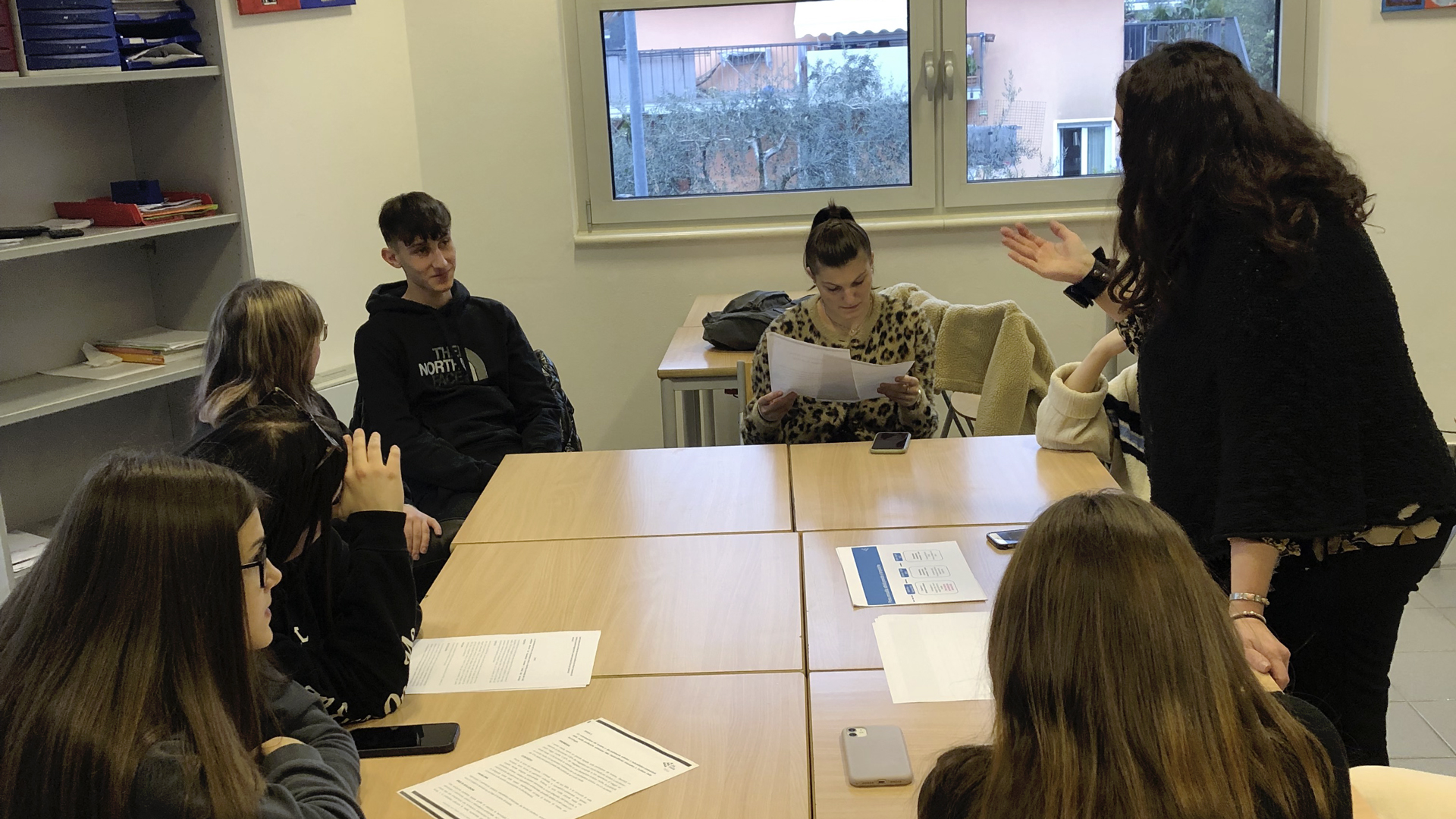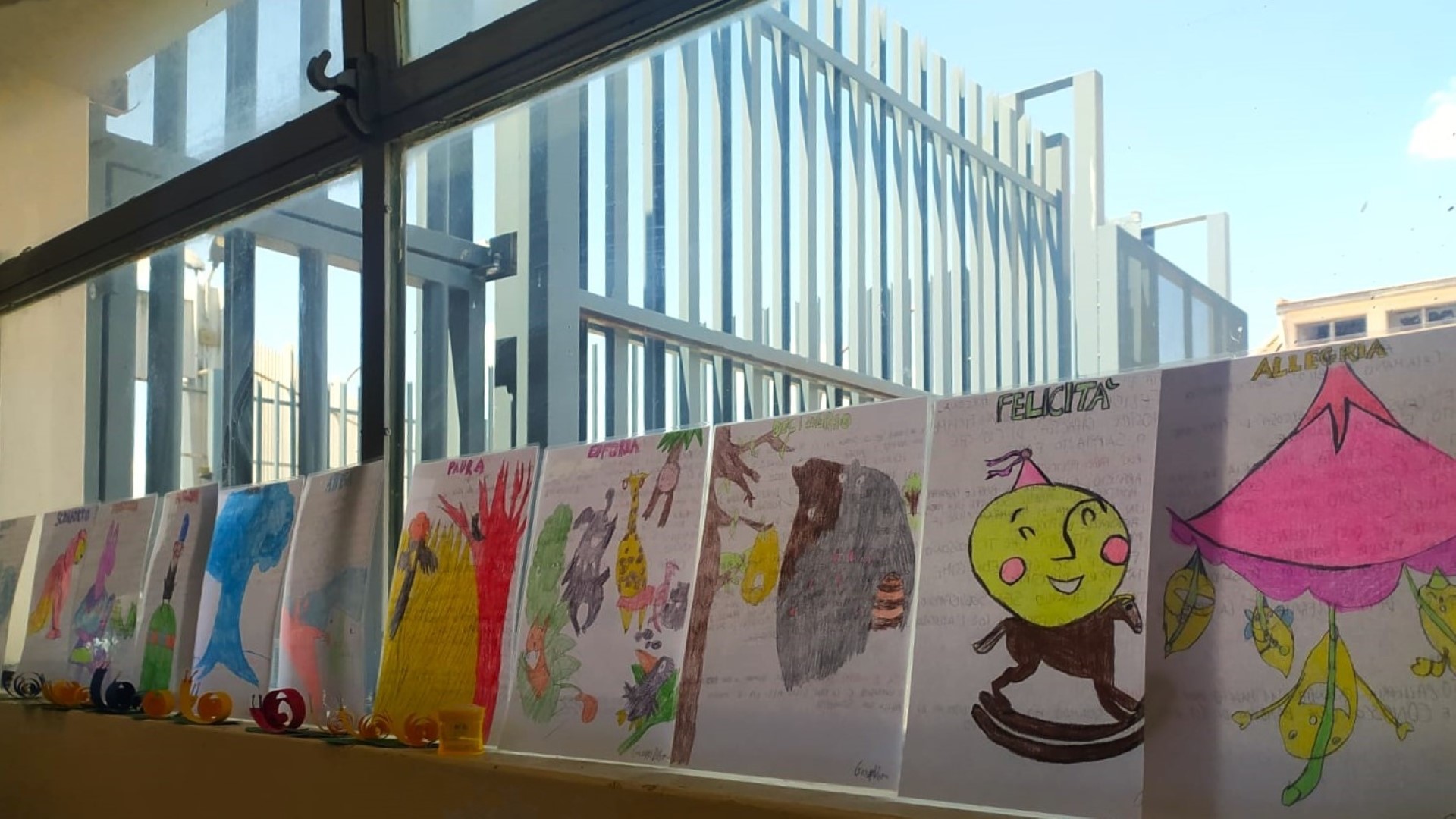World Children's Day 2023
20 November is the World Children's Day, the aim of which is to draw everyone's attention to the rights of children, providing an inspiring starting point for defending and promoting them.
This day was first celebrated on 20 November 1954 and on the same date the United Nations General Assembly adopted the Declaration of the Rights of the Child in 1959 and adopted the Convention on the Rights of the Child in 1989.
Child protection: from the UN 2030 Agenda to corporate commitments
The protection of children's rights is also a key theme in the UN's 2030 Agenda, which cuts across all the SDGs, although it is more interrelated with certain goals such as the fight against poverty, the right to health and well-being, and quality education.
However, according to the UN, in the absence of decisive action, more than half a billion people will still be living in extreme poverty in 2030; more than 80 million girls and boys will not go to school and 300 million will not be able to read and write. And even in Italy the situation is worrying: the ASVIS 2023 report - Italy and the Sustainable Development Goals shows that in Italy there are 1.3 million children in absolute poverty, 36.9 per cent of children and adolescents between 5 and 19 years of age.
To tackle this situation and achieve significant results, the commitment of everyone - institutions, governments and businesses - is crucial. First and foremost, it is necessary to ensure that children and adolescents in vulnerable situations have access to early childhood care services, education and school activities, one healthy meal a day on every school day, and health care, with particular attention also to the gender dimension and specific forms of disadvantage.
In particular, ensuring quality education from an early age is indispensable because a satisfactory level of education is usually associated with a lower risk of poverty, healthier nutrition, higher life expectancy, greater attention to gender issues, greater sensitivity to environmental issues. Reducing inequalities, starting with educational inequalities, means intervening early on the factors that generate and aggravate them.
Intesa Sanpaolo's commitment to children's rights
The theme of young people in general is included within the action lines of the Business which are geared towards ensuring support for social needs and promoting educational inclusion programmes, with a variety of projects.
Projects for the Social
Intesa Sanpaolo, in collaboration with realities of excellence in the health, cooperation and non-profit worlds, has activated a series of interventions of great social impact throughout the country to combat child poverty and support children and families in situations of fragility and need. One example is the Educational Programme for children who are long-term patients.
Educational Programme for children who are long-term patients
Activated in 2016, the Programme aims to help children in the 0-3 age group overcome the social and psychological isolation resulting from the heavy care they have to cope with and from long-term hospitalisation, through the provision of a free nursery service provided in hospital rooms or in special spaces within hospital facilities. The educational activities are managed by qualified educators from local social cooperatives belonging to PAN - Servizi per l'Infanzia, a consortium of which the Bank is also a member.
As of today, the initiative is active in 7 hospitals of excellence (Turin - Regina Margherita Children's Hospital, Naples - A.O.R.N. Santobono Pausilipon, Monza - San Gerardo Hospital, Padua - University Hospital, Bologna - Policlinico di Sant'Orsola, Genoa - Istituto Giannina Gaslini and Bari - Policlinico Giovanni XXIII) and all 650 young patients have used the crèche service (as at 30.09.2023). The opening of a new nursery at the Trieste hospital is planned within the year.
Charity Fund
The Charity Fund is the main instrument through which Intesa Sanpaolo supports projects for people in disadvantaged and fragile conditions. Each year a portion of the Bank's profits is destinated for this purpose, following a consolidated tradition enshrined in Intesa Sanpaolo's Articles of Association.
Among its various areas of intervention, the Fund dedicates significant resources to supporting children's projects. Specifically, this is done through initiatives to combat the educational impoverishment of minors, particularly those in socio-economic difficulties, projects to protect children experiencing situations of intra-family violence or discrimination, interventions in the care of sick children who are involved in long-term medical practices projects aimed at the integration of unaccompanied foreign minors, initiatives aimed at children and young people with intellectual and/or physical disabilities, and psychological support actions for all those situations in which the child's experience has been affected by trauma, violence or particular hardship (e.g. those encountered during and after the Covid-19 pandemic).
- "ScuolaVerso" by Junior Achievement - Young Enterprise Italy. A two-year project implemented in Maratea (Potenza) and Arco (Trento) focused on entrepreneurship education, to give young people in the inland areas of Basilicata and Trentino Alto Adige the opportunity to develop skills that will enable them to successfully face the world of work.
- "Youth places. Spaces of care at the service of young people in Central Italy" by the Salesian District of Central Italy. In Rome, Genoa, Livorno, Ancona, Sassari and Cagliari, it is aimed at children and young people in material and educational poverty, responding to the needs that have arisen as a result of the pandemic. The beneficiaries experience personal empowerment processes, through educational and confrontational offers and customisable paths.
- "OPPORTUNITY' by Fondazione Exodus onlus. A three-year project that, in various Italian provinces, works to combat school drop-outs, consolidating educational centres where the 'educational relationship' and care for adolescents are successful. Active education tools are adopted, with a focus on interactive and experiential teaching.

- "Women Free' by Fondazione Città Solidale onlus. In Catanzaro, it provides support to vulnerable women and victims of violence. Where there are minor children, psychological support is offered, educational support to facilitate mothers' work-life balance, recovery of the mother-child relationship, social reintegration.
- "HELP HOUSE GIRLS" of E.M.M.A. onlus Anti-Violence Centres. In Turin, it envisages the opening of a shelter for underage women victims of gender-based violence (ill-treatment and abuse in intimate relationships and within the family, female genital mutilation practices, forced marriages).
- 'ARGO Non-medicinalised centre for children, young people and adults with cognitive disabilities' by FOQUS Fondazione Quartieri Spagnoli Onlus. In Naples, it develops psychotherapeutic, speech and social autonomy programmes; inclusion and development activities for young people with cognitive disabilities, trying to break down the cultural barriers that revolve around them.
- "The coloured feathers of Mikhael: children beyond prison" by Lavori in Corso OdV Ets. In Foggia, it involves accompanying prisoners' children in the management of their emotions, feelings, time and experience during meetings with their imprisoned parents.
- "Self-determination in children and adults with Down syndrome: from dependence to interdependence" by Associazione italiana persone down Onlus section of Pisa. It works on inclusion and the development of self-determination; with the families of beneficiaries, they learn to make decisions based on their preferences and interests, and to monitor and regulate their actions.

For Funding, Formula Programme and Support to the Third Sector
For Funding is the Group's social crowdfunding platform aimed at non-profit organisations that want to start a fundraising campaign to support their high-impact projects. For Funding is a unique and distinctive model in the crowdfunding world. Every donation made is free of charge for the donor and the beneficiary and therefore every euro donated goes to the project.
Intesa Sanpaolo has also activated the FORMULA Programme of For Funding dedicated to the specific needs of each regional territory in terms of environmental sustainability, social inclusion and access to the labour market for people in difficulty. The territorial projects supported by Formula are chosen with the involvement of the bank's Regional Departments, assisted by Cesvi Foundation, which supports Intesa Sanpaolo in identifying non-profit organisations of excellence at a local level in order to intercept the opportunities with the greatest positive impact on the community.
From 2017 to date, the For Funding platform has hosted more than 20 projects on the theme of early childhood, which have raised a total of more than € 1.66 million, in collaboration with 25 national and international non-profit organisations. Among these we highlight in particular:
- Quotidianità che cura: vicini, ogni giorno! by the CasaOz Onlus Association (Turin), which aims to support the care of children, young people and families encountering illness and disability and living in an 'emergency' situation, ended in August 2022.
- Benvenido: Un nido per tutti, per ridurre le distanze, by the Cooperativa Progetto Now (Padova Rovigo area), to help overcome the barriers that prevent children from vulnerable families from accessing the nursery like others. Project launched on 26/08/2023 and still ongoing.
Last updated 17 November 2023 at 17:46:46